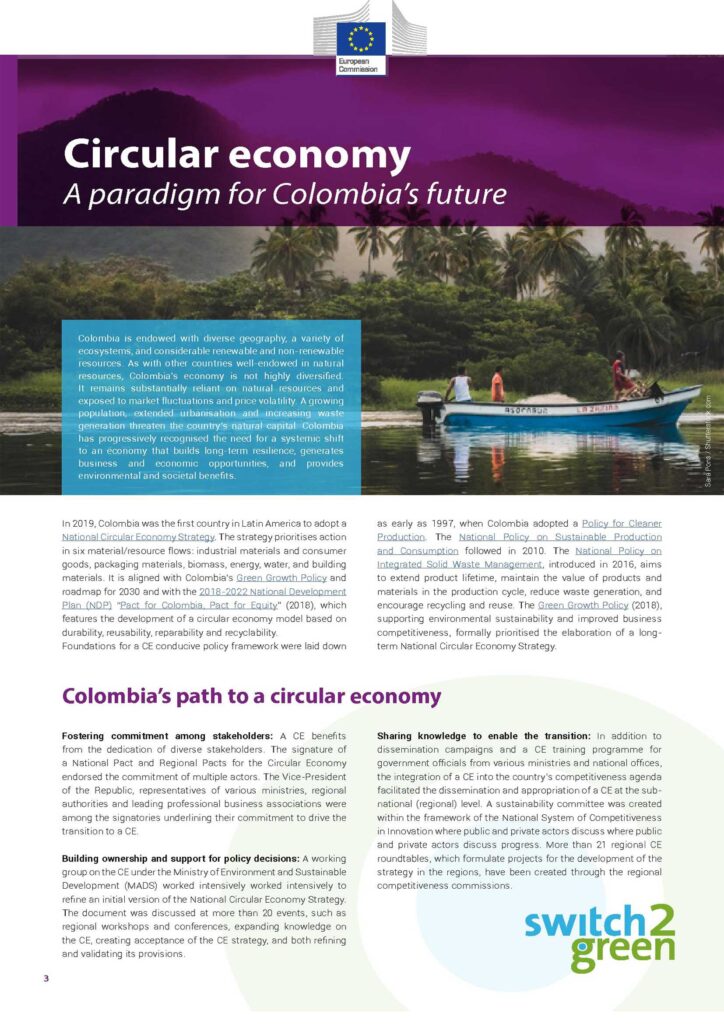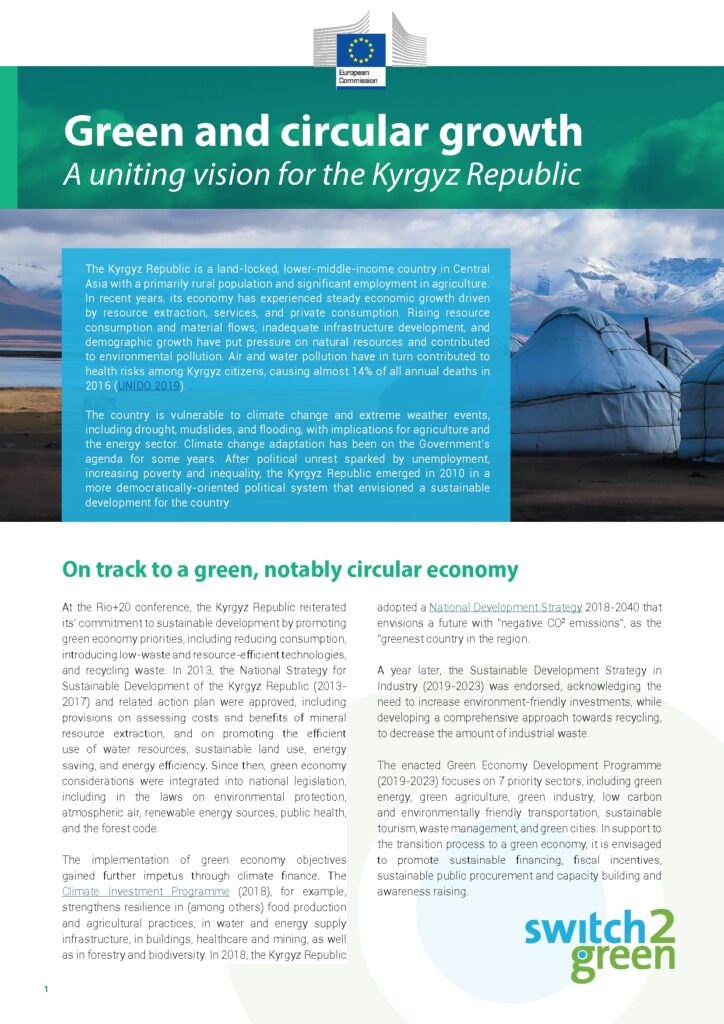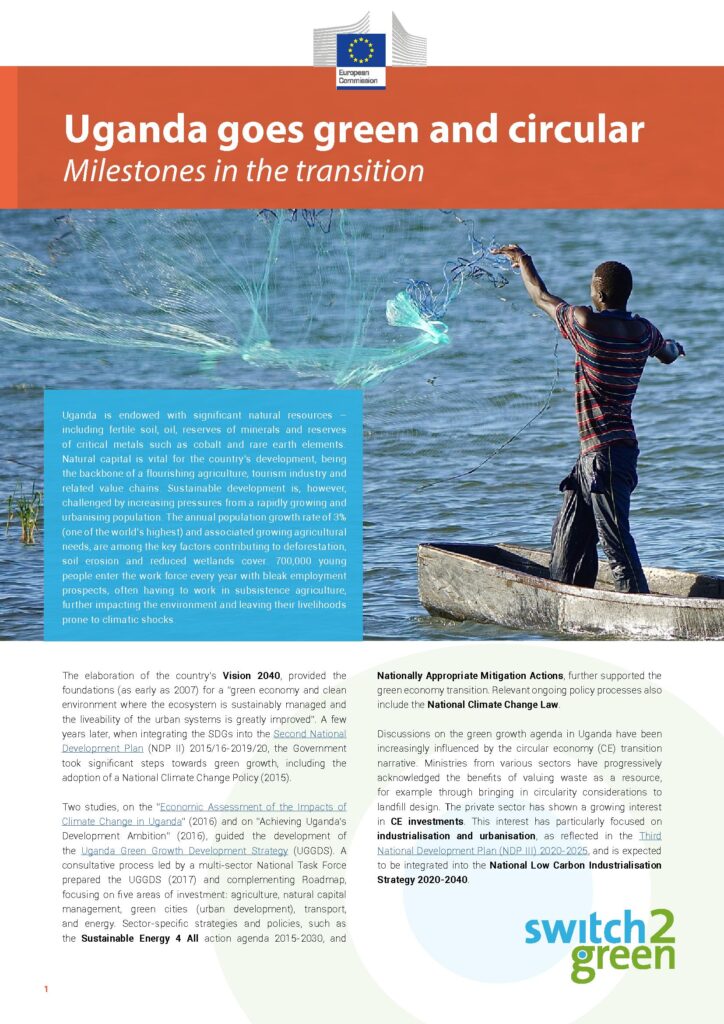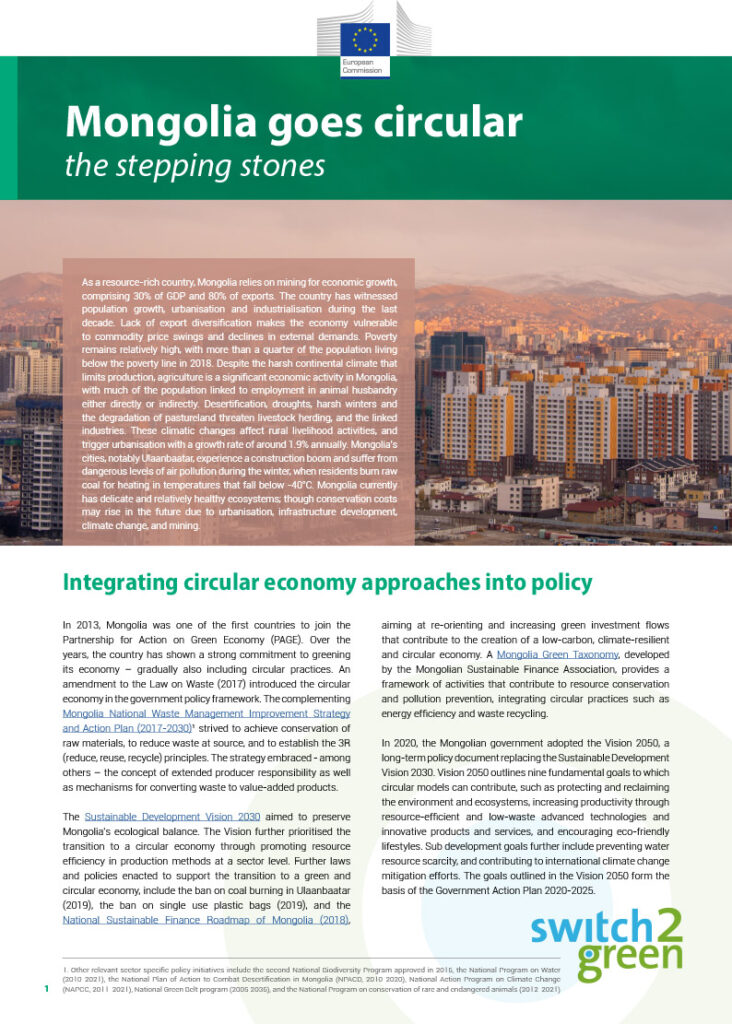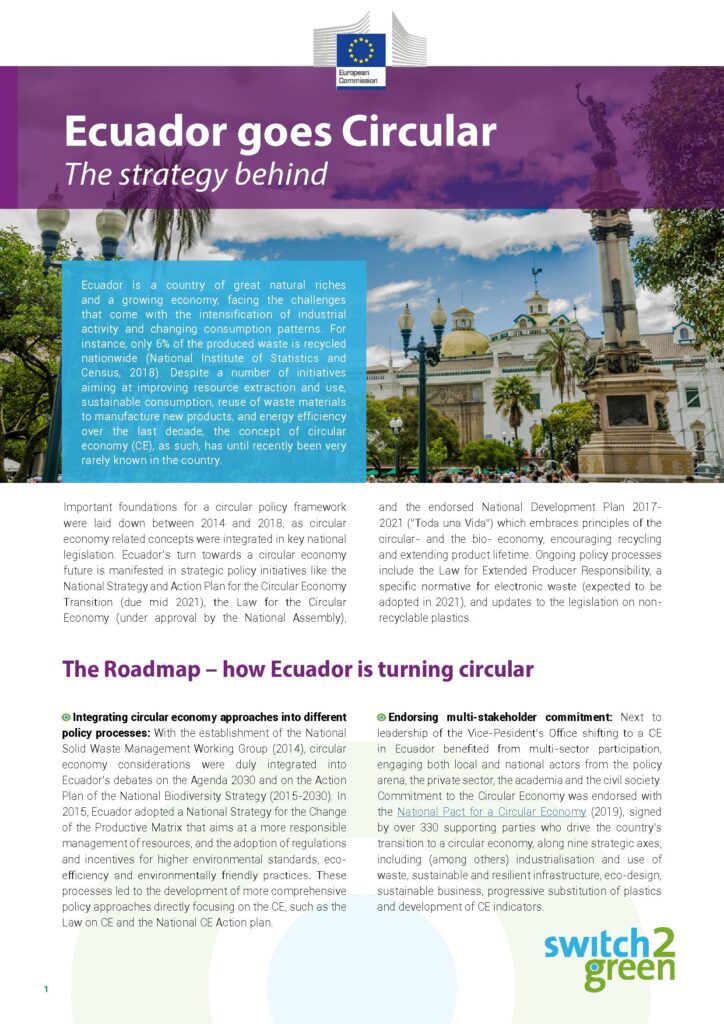The circular economy brings multiple benefits, contributing to a sustainable and resilient welfare model. By aiming to maintain the value of products, materials and resources for as long as possible, to design out waste and pollution, keeping products and materials in use, and to return valuable resources to natural ecosystems for their regeneration, circularity improves the well-being of people and nature, next to the resilience of the economy towards crisis.
Countries across the world have started the journey towards a Circular Economy. A research on the support to the Circular Economy transition at country level, delivered insights in the country experiences of Colombia, Ecuador, Kyrgyz Republic, Mongolia, Uganda and Senegal.
Interviews with stakeholder including EU Delegation staff allowed the collection of complementary information on the vision and motivation of stakeholders in the circular economy transition process, the key challenges and milestones, as well as any lessons learnt and success factors that could help better understand the “recipe” for replication. Additionally, the publication features policy development processes and cooperation activities that support the circular economy transition in the six partner countries..


